AIRCRAFT CHARTER CONSUMER GUIDE
 Safety, security, convenience and productivity are key reasons why individuals and companies choose on-demand air travel for personal and business travel. Air charter flights operate on the passenger’s schedule, allowing considerable flexibility. With the ability to fly in and out of more than 5,000 public use airports in the United States – more than 100 times that of the airlines – air charter provides convenient access to your destination. And air charter is a safe mode of transportation asper our aircraft charter consumer guide.
Safety, security, convenience and productivity are key reasons why individuals and companies choose on-demand air travel for personal and business travel. Air charter flights operate on the passenger’s schedule, allowing considerable flexibility. With the ability to fly in and out of more than 5,000 public use airports in the United States – more than 100 times that of the airlines – air charter provides convenient access to your destination. And air charter is a safe mode of transportation asper our aircraft charter consumer guide.
Even with all the benefits air charter provides, it also is true that not all air charter operators can or will meet your specific wants and needs. You must become an educated air charter consumer. A general understanding of what questions to ask and what answers to expect will assist you in your effort to choose a charter operator that will provide the aircraft and service level you require and deserve as per our aircraft charter consumer guide.
This NBAA guide serves as a basic introduction to aircraft charter. It provides a high-level overview of the aircraft charter industry and the Federal Aviation Administration’s (FAA’s) involvement in establishing regulations and overseeing charter operations. The guide also provides you with tools you may customize and use to pre-screen charter operators and charter brokers to obtain competitive quotes for charter flights as per our aircraft charter consumer guide.
Because each consumer has different needs and requirements, there is not necessarily only one correct answer to the pre-screen questions that NBAA recommends consumers ask charter operators or charter brokers. However, when screening multiple operators, you will be able to obtain an apples-to-apples comparison. Some answers will be straightforward and intuitive, others will require aviation knowledge and expertise. The introduction you receive via this guide will help in many areas, yet first-time charter consumers might consider working closely with an aviation expert for aircraft charter needs. For example, if your company operates an aircraft for its business, we recommend you consult with the flight department manager or chief pilot, who can help you select a charter operator for your on-demand air transportation needs.
Nationwide, there are more than 2,100 air charter operators. These charter operators are required to hold an air carrier or commercial operating certificate issued by the FAA and operations specifi- NBAA Aircraft Charter Consumer Guide 3 cations that contain company names, authorizations and limitations. This certificate allows charter operators to conduct on-demand operations under FAR Part 135 for most business aircraft. Each charter operator is assigned to an FAA Flight Standards District Office (FSDO) that oversees that certificate, and each operator has an assigned FAA principal operations, airworthiness and avionics inspector.
Some charter operators serve local markets, others operate internationally. Some operate smaller single-engine aircraft, others operate large “flying office” turbojet aircraft. Some operate at worldclass levels, others operate at the bare minimum FAA regulatory requirements. Knowing your requirements and preferences (i.e., your mission) will help you find the right operator for you as per our aircraft charter consumer guide.
Click Here for the full aircraft list
What Is the Mission for the Flight?
In the realm of charter aircraft, one size does not fit all. There have been more than 300 business aircraft makes and models certificated by the FAA, many of which can be used for charter flights. Knowing your mission will help ensure you arrange the right fit for your air travel needs. For example, you would not charter a business jet for a fishing expedition in a location accessible only by seaplane, nor would you want to charter a single-engine seaplane to fly you from the U.S. to your meeting in Asia.
Following are some key points you will need to know before arranging a charter flight:
What is the point of origin (city, state, country)?
• What is the destination (city, state, country)?
• Are there other locations, such as interim stops, planned during the trip?
• Are your dates/times for travel firm or do you require flexibility?
• How many passengers will be traveling?
• Do you need the aircraft to fly non-stop on all legs of the trip?
• Do you have aircraft cabin prefer
– In-flight telephone/Internet
– Conference table for an in-flight meeting
– Non-stop capability
– Sleeping capabilities
– Lavatory
• Do you have any special needs/ requirements? For example:
– Preference for propeller or jet aircraft
– Flight attendant services to perform safety and service functions
– Baggage and/or cargo capacity
– Meal service
– Accommodation of passengers with disabilities and/or allergies
How Do I Find an Air Charter Operator?
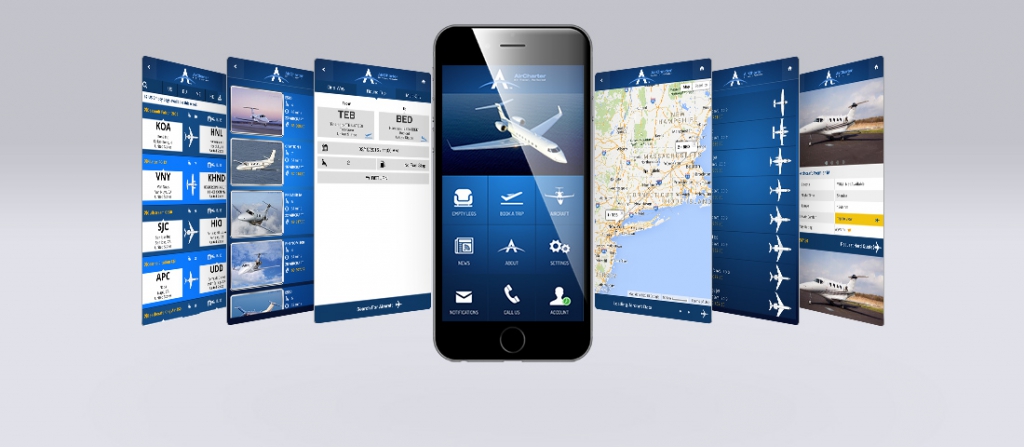 Multiple advertising outlets exist to help you find an air charter operator, including general resources, such as telephone directories and Internet searches, and industry-specific resources, like aviation industry magazines and NBAA’s Products & Services Directory. These resources may help you find a charter operator located in your general geographic area and with aircraft that will meet your mission. However, they will not necessarily help you determine which charter operators train their crew to the highest standards, carry the appropriate insurance or ensure the best possible maintenance for their aircraft.
Multiple advertising outlets exist to help you find an air charter operator, including general resources, such as telephone directories and Internet searches, and industry-specific resources, like aviation industry magazines and NBAA’s Products & Services Directory. These resources may help you find a charter operator located in your general geographic area and with aircraft that will meet your mission. However, they will not necessarily help you determine which charter operators train their crew to the highest standards, carry the appropriate insurance or ensure the best possible maintenance for their aircraft.
NBAA’s online Products & Services Directory lists both air charter operators and air charter brokers at www.nbaa.org/prodsvcs or click book a trip on this site to get the best prices on your private jet charter.
What Should I Know About Air Charter Brokers?
In addition to the 2,100-plus charter operators, in the aircraft charter consumer guide there are air charter brokers who are individuals or companies that link charter customers with charter operators and may provide many valueadded services to assist the air charter consumer. Customers can ask a broker what type of value-added services they provide that may not be routinely provided by aircraft operators. In addition to due diligence research on operators, aircraft and crew qualifications, brokers also may make arrangements for ground transportation, special catering, on-board passenger amenities, hotels, executive security, destination security briefings, etc.
Unlike FAA-certificated charter operators, charter brokers are not regulated by the FAA or Department of Transportation (DOT). However, the DOT has set certain requirements for air charter brokers, which are summarized here: (1) Brokers must be clear with the consumers that they are not the FAA-certificated charter operator or the entity operating the flight. (2) Air charter brokers work either at the request of the consumer to find charter operators or at the request of the charter operator to find customers. Alternatively in the aircraft charter consumer guide, brokers can act as a “middle-man” where the broker, at the request of a customer, finds an appropriate charter operator, with which the customer then contracts directly for the charter flights. In this middle-man scenario, the broker is not involved in any way with the provision of air transportation, and the customer pays the broker separately for its services.
If, as the consumer, you would like the charter broker to be your agent, then you need to control the authority you delegate to the broker this is why we created the aircraft charter consumer guide (e.g., Do you authorize the charter broker to negotiate on your behalf? Sign contracts on your behalf? Pay the charter operator on your behalf?).
If you choose to work with an air charter broker, be certain that any broker you work with has air charter expertise, including knowledge of the Federal Aviation Regulations applicable to aircraft charter, as well as ensure the air charter broker provides you with the information NBAA Aircraft Charter Consumer Guide 5 requested in this guide’s appendices so that you will be familiar with the air charter operator(s) that may conduct your flight(s). If the air charter broker is unwilling or unable to provide you with the required information, you might consider working with another broker or directly with a charter operator who can provide you with the necessary information.
How Do I Select a Charter Operator or Broker?
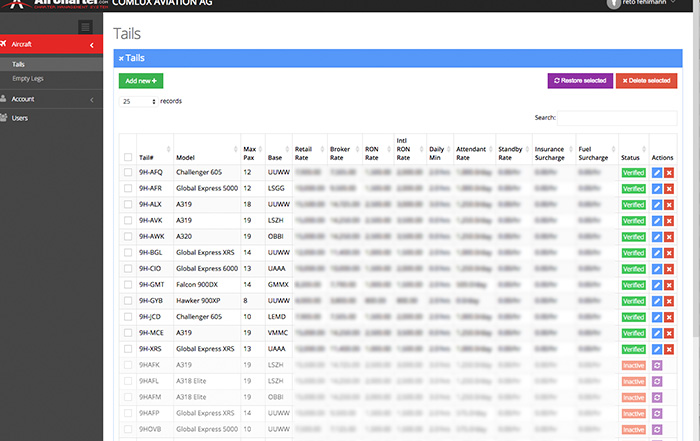 NBAA highly recommends that charter customers pre-screen charter operators, so that when you need to arrange a charter flight, you will have a listing of qualified charter operators readily available for your particular need. Alternatively, aircharter can provide this prescreening for you; upon your request, we will provide you with adequate and full answers to all of the pre-screening questions as per our aircraft charter consumer guide.
NBAA highly recommends that charter customers pre-screen charter operators, so that when you need to arrange a charter flight, you will have a listing of qualified charter operators readily available for your particular need. Alternatively, aircharter can provide this prescreening for you; upon your request, we will provide you with adequate and full answers to all of the pre-screening questions as per our aircraft charter consumer guide.
The FAA is aware that some Part 91 operators attempt to evade the commercial air carrier regulatory oversight and elevated level of safety that is ensured as a certificated Part 135 operator. These transgressing operators typically offer to dry-lease an aircraft to potential customers and may hold many dry lease agreements on just a single aircraft. In a dry-lease agreement, operational control over the aircraft, liability and oversight fall squarely on the customer, unlike a Part 135 charter flight where the operator retains operational control at all times. Setting up a proper dry-lease takes considerable lead time and paperwork, so customers should take great care to exercise vigilance when an operator attempts to provide an aircraft using a dry-lease agreement in lieu of a charter flight, especially on short notice. While the FAA has a special emphasis investigation team dedicated to identifying and prosecuting these non-compliant operators, it is important to use caution and thoroughly vet any potential charter operators prior to engaging in any business activities including the agreement of charter flight contracts.
Appendix A contains a list of suggested screening questions that you may use to learn more about the charter operator. You likely will have questions of your own to add to this list. This section discusses many of the operational issues that will assist you with your screening. While all charter operators are required to meet specific standards mandated by the FAA (e.g., regulations for aircraft maintenance, aircrew training and aircraft operations), many operate at a level above and beyond the minimum. You will want to select a charter operator based on several objective criteria, which include:
SAFETY AND SECURITY


If no independent audit has been done on the operator, the charter customer can seek the assistance of these organizations, or other experienced aviation professionals with audit experience, to have a third-party safety audit conducted. If the charter operator is in your area, visit its facilities to see firsthand the condition of the aircraft and determine the level of customer service. Charter customers with business aviation expertise also may want to conduct their own audits of potential charter operators. Security is a primary reason consumers turn to business aviation, including air charter, for travel needs. The Transportation Security Administration (TSA) has established security plans and procedures for aircraft over 12,500 lbs., which includes 6 most charter aircraft. Charter operators and passengers are required to follow these regulations, and many charter operators have voluntarily implemented additional security measures. You will be required to provide information to the charter operator prior to the flight and provide government-issued photo identification prior to boarding the flight. Other security protocols will be in place, and these may vary depending on the airport and the charter operator as per our aircraft charter consumer guide.
OPERATIONAL CONSIDERATIONS
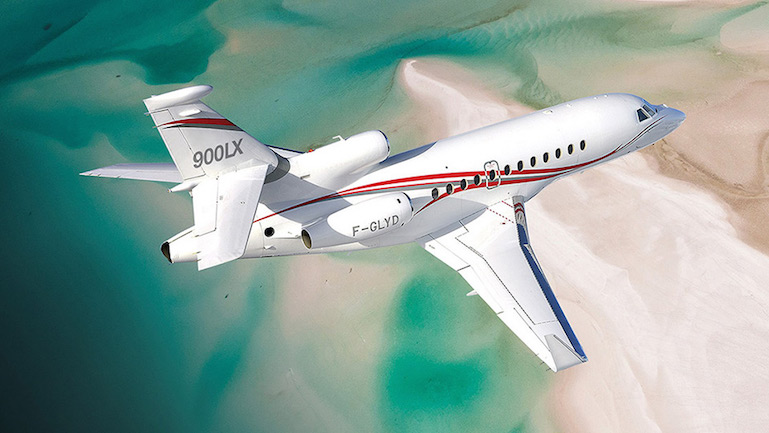 While the FAA mandates initial and recurrent training for charter pilots, there are some differences in how often the training is provided and where the training is conducted. Generally, for jet aircraft, a minimum of annual recurrent training in a flight simulator is preferred. The experience level of the crew is also important. The highest FAA rating a pilot can earn is an airline transport pilot (ATP) rating, which requires a minimum of 1,500 hours flight experience. You will want to know the total flight hours of the crew and, even more important, how many hours each crew member has in the make/model of that aircraft.
While the FAA mandates initial and recurrent training for charter pilots, there are some differences in how often the training is provided and where the training is conducted. Generally, for jet aircraft, a minimum of annual recurrent training in a flight simulator is preferred. The experience level of the crew is also important. The highest FAA rating a pilot can earn is an airline transport pilot (ATP) rating, which requires a minimum of 1,500 hours flight experience. You will want to know the total flight hours of the crew and, even more important, how many hours each crew member has in the make/model of that aircraft.
Ensure that newer, less experienced pilots are paired with pilots who have more experience in the aircraft (the industry refers to this as “crew pairing”). For example, you might not want to charter a turbojet aircraft that will be flown by a captain with fewer than 250 hours in the make/ model and a first officer with little or no experience in that aircraft. Aviation industry vendors and auditors can recommend flight time and crew pairing minimums to help you determine appropriate levels as per our aircraft charter consumer guide.
For safety reasons, the FAA restricts flight and duty time of the crew and requires crew rest periods. Flight duty and rest regulations might impact your flight (e.g., you might not be able to leave for a meeting at 6:00 a.m. and return home the same day at 10:00 p.m. with the same aircraft and crew). Become familiar with the operator’s policy and procedures on crew duty limits and how they will conduct your mission and maintain those policies. Other safety considerations include whether or not the operator has had any accidents or incidents, or whether the flightcrew has had any FAA enforcement actions taken against them. The most important aspect to learn from the charter operator is what steps it has taken to increase safety if it has any accident or enforcement history. Another consideration is maintenance and care of the aircraft. The FAA approves the maintenance programs for all aircraft operating on air charter operations specifications. You will want to know who maintains the aircraft. Is it maintained by a factory service center, by an in-house mechanic or by a local repair facility? If it is not maintained by the factory, how often is/are the maintenance technician(s) sent for training specific to that make/model aircraft?
If the aircraft is an older model, what is the condition of the aircraft’s appearance (paint and interior), and have the pilot’s instruments and navigation equipment (called aircraft avionics) been updated to current technologies such as Global Positioning System (GPS), Wide Area Augmentation System/Localizer Performance with Vertical Guidance (WAAS/LPV), Enhanced Vision System (EVS) or Enhanced Ground Proximity Warning System (EGPWS)? How does the operator handle maintenance situations that, on a rare occasion, might arise during a trip you have booked? Does the operator have additional aircraft to accommodate any maintenance-induced cancellations?
If you are planning an international flight, determine what experience the operator has flying to/ from/within the countries you wish to visit. You will want to learn if the operator implements any specific safety and security measures when conducting operations in that region and whether NBAA Aircraft Charter Consumer Guide 7 the charter operator assists with immigration and customs logistics, such as visas and customs forms. Obtain information from the operator as to whether they use a ground handler or agent at the airport which you will be visiting.
Similarly, the training and experience levels of flightcrew conducting specialized flight operations, such as flights into airports surrounded by mountainous terrain (including ski airports in the Rocky Mountain region), extended over-water operations (e.g., flights from the U.S. mainland to Hawaii), polar operations or flights into airports with unique operating characteristics (e.g., steep approaches to landing) should be researched. How often does the charter operator conduct training for crew conducting these flights (annual recurrent training is recommended as a minimum), and how often does the crew conduct these specialized operations?
Many charter operators also train their pilots and flight attendants in emergency procedures, first aid and CPR for the rare instances when emergencies arise or passengers need medical attention during a charter flight. In addition, some aircraft operators carry a defibrillator on board and/or subscribe to an in-flight medical assistance program to provide additional medical assistance to passengers in the event it is needed. Check with the operator to ensure one or more flightcrew members will be trained in emergency procedures, first aid, CPR and aircraft-specific emergency egress.
A benefit of flying on a chartered aircraft is the customer service experience. While screening potential operators, determine how the charter operator ensures a consistent and high level of customer service. Do the pilots, flight attendants and other employees receive customer service training – if so, what does the training entail and how is their performance measured? Have service standards been established for the crew? What are they and how are they measured? How soon prior to the scheduled flight will the aircraft be at the airport ready for departure? Generally, the aircraft and flightcrew will arrive at the airport 60 minutes prior to scheduled flight time and will normally be ready to board 30 minutes prior to scheduled departure time.
How will the charter company accommodate you if there is a problem with the flight arrangements? To whom would you go to with a complaint – the flightcrew or company headquarters? Will someone be available at any time – day or night – to assist you should you have a complaint? One indication of a charter operator’s service levels will be the number of repeat customers it has as per our aircraft charter consumer guide.
Related to customer service is confidentiality. You might inquire with the charter operator how it ensures and maintains the confidentiality of your travel arrangements, if this is important to you or your business.
KNOW THE CHARTER OPERATOR
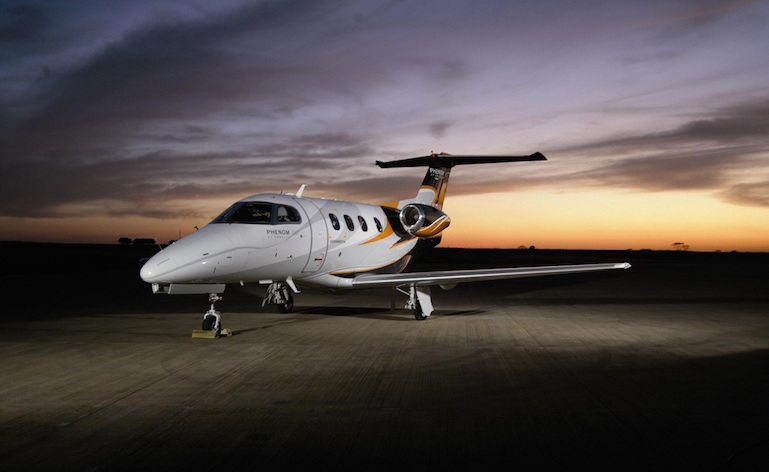 Is there an air charter broker involved in arranging the charter flight or are you dealing directly with the charter operator? You should know who will be conducting each flight and the qualifications of that charter operator. Also ask to see the valid FAA-issued air carrier certificate of the charter operator that will conduct the flight(s). From that, you will see the FAA air carrier operating certificate name and number.
Is there an air charter broker involved in arranging the charter flight or are you dealing directly with the charter operator? You should know who will be conducting each flight and the qualifications of that charter operator. Also ask to see the valid FAA-issued air carrier certificate of the charter operator that will conduct the flight(s). From that, you will see the FAA air carrier operating certificate name and number.
Become familiar with the charter operator’s history and experience. Was it recommended to you by someone knowledgeable of aviation? Knowledge of the operator’s experience, safety record, FAA enforcement action history and scope of operations will assist you in choosing an operator well-suited for your needs as per our aircraft charter consumer guide.
When booking a charter flight, confirm that owner approval is or is not required, and if required, confirm when owner approval is expected. Sometimes the charter operator is unable to conduct a flight that you might have scheduled. In most cases, the charter operator will find another charter company to conduct the flight for you. Ask how the charter company handles situations such as this. What criteria does the operator use to select the substitute charter company? Consider whether the same criteria you have set forth are used when choosing the substitute charter operator and if the substitute operator meets the same standards you have established. You should insist upon being advised of the name of any substitute charter operator proposed and of the right to cancel your arrangements with a full refund in the event that substitution is not satisfactory to you as per aircraft charter consumer guide.
INSURANCE REQUIREMENTS AND RECOMMENDATIONS
Inquire about the charter operator’s insurance coverage to ensure the limits are adequate. According to one expert, many prospective jet charter clients look for a minimum limit of $50 million ($50,000,000) combined single limit, bodily injury to passengers and property damage liability. However, more or less insurance coverage may be appropriate depending on your needs and the charter operator. Contact your insurance broker to discuss whether other opportunities may exist to insure chartered aircraft.
Have the charter operator list you (or your company, and any other appropriate parties) as an additional insured on its aviation insurance policy. As an additionally insured charter customer, the limit of liability will be shared with the charter operator and other parties on the charter operator’s insurance policy. Request and obtain a waiver of subrogation. And insist on receiving 30 days’ notice of cancellation. Prior to the flight, obtain a certificate of insurance confirming the coverage and specifically identifying the aircraft that will be used. Industry standards are for consumers to acquire proof of insurance coverage under the operator’s aviation insurance policy as per our aircraft charter consumer guide.
PRICE
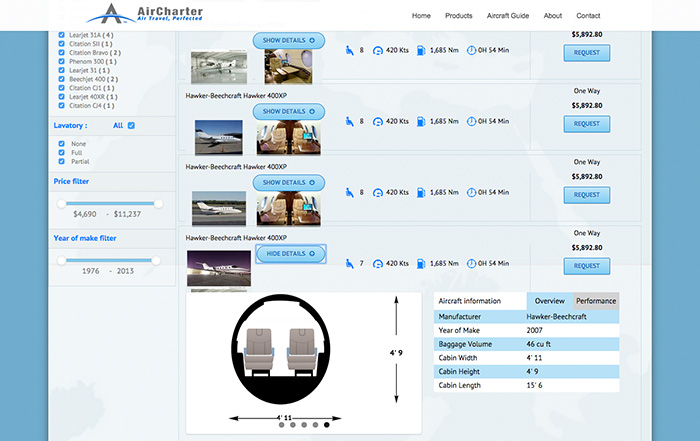 Do not choose a charter operator based on price, and price alone. The safety and security of the passengers must be the primary consideration. If you receive multiple quotes from comparable charter operators, then price could be an important factor. If you have a need for charter on a regular basis, you might be able to negotiate with the charter operator or charter broker on a “block charter” price, whereby you purchase 25-, 50- or 100-hour time blocks, which you can use over a specified period of time as per our aircraft charter consumer guide.
Do not choose a charter operator based on price, and price alone. The safety and security of the passengers must be the primary consideration. If you receive multiple quotes from comparable charter operators, then price could be an important factor. If you have a need for charter on a regular basis, you might be able to negotiate with the charter operator or charter broker on a “block charter” price, whereby you purchase 25-, 50- or 100-hour time blocks, which you can use over a specified period of time as per our aircraft charter consumer guide.
Charter customers might also find jet cards to be a viable option for charter. In recent years, a number of charter operators, and even charter brokers, have started selling jet cards, which are similar to block charter in that you purchase 25 to 50 hours in a specific category or type of aircraft that will be operated under charter regulations by one or more certificated charter operators vetted by the card provider. If you chose a jet card option, be certain to know who the charter operator will be so that you can research that operator’s reputation and safety record as per our aircraft charter consumer guide.
Technological developments, including the internet and mobile applications, have enhanced the industry’s ability to match passenger flight requests with available aircraft. Charter brokers, and in some cases charter operators, are now able take advantage of crowdsourcing options to reduce costs for passengers who are willing to share available seats. For example, flights booked through a mobile application without personal contact with an aircraft charter broker or operator may be of the crowd sourcing variety, which could result in sharing seats with other NBAA Aircraft Charter Consumer Guide 9 passengers on the flight. While the form of crowdsourcing can vary, if it is a possibility, a charter broker or operator should always ask before you contract for the flight if you are willing to share the aircraft with other passengers to reduce your cost. Nevertheless, if your total passenger count is fewer than the number of available seats, it is always best to inquire if the flight will be shared or not and confirm these details directly with the charter broker and/or operator prior to the flight.
With any type of charter, it is important to know where your money is until it has been used. Charter operators and charter brokers should inform their customers where their money will be held, and customers should ensure that any payments made in advance of a charter trip are held in a separate account, escrow or other recognized financially secure account, until used.
Also, it is important to create an apples-to-apples comparison of the charter quotes you might receive. In addition to aircraft flight-time charges, there may be other costs associated with charter operations, including one-way fees (for non-round trip flights), fuel surcharges, wait-time charges, crew transportation and overnight charges, catering, ground transportation, overflight, landing and handling fees, agriculture, customs, immigration, security fees and federal excise taxes. Know what the entire cost of the flight will be before signing the charter contract. Finally, it is prudent to have an attorney review your charter contract/agreement before signing it and scheduling the flight this is the best aircraft charter consumer guide.
Be advised that all commercial flights within the United States are subject to a Federal Excise Tax (FET) of 7.5 percent of the amount paid on transportation. Line items not related to the movement of the aircraft such as catering and ground transportation are typically excluded from FET. Generally, the agent or the company billing the end client is responsible for collecting and remitting FET. Consult the NBAA Federal Excise Tax Guide for more information on FET.
Appendix B provides a charter request for proposal (RFP) form to assist you with your charter company selection and pricing for a particular trip. A PDF copy of the form and additional charter consumer resources are accessible via the NBAA web site at www.nbaa.org/charter.
Appendix A: Aircraft Charter Pre-Screening Questions
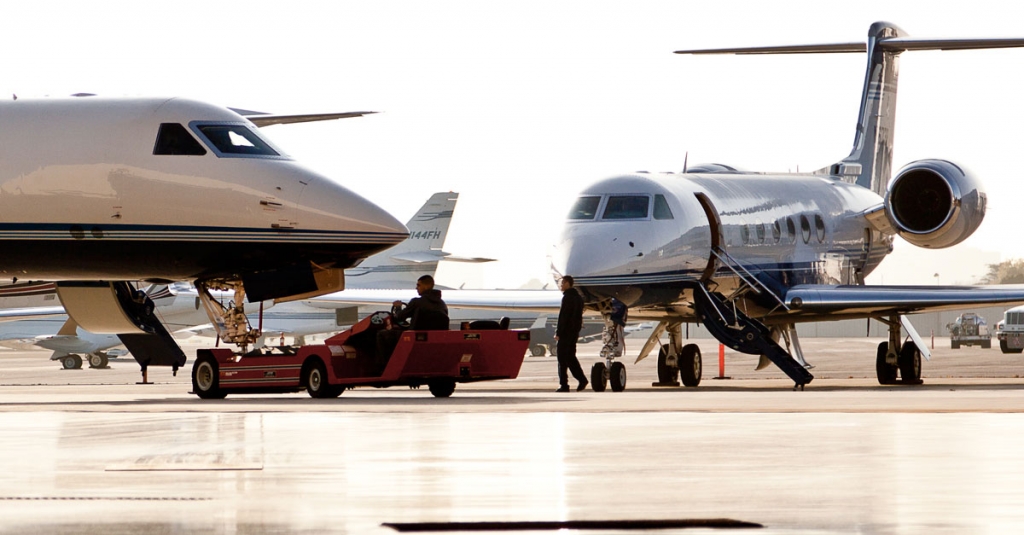 Charter consumers are best served when the pre-screening of several charter operators and/or charter brokers is conducted in advance of a charter flight. Use the following questions as a basis to determine which charter operator or charter broker might be the best match for your needs.
Charter consumers are best served when the pre-screening of several charter operators and/or charter brokers is conducted in advance of a charter flight. Use the following questions as a basis to determine which charter operator or charter broker might be the best match for your needs.
• Who is the FAA-certificated charter operator that will conduct our charter flights? What experience does the operator have? How long has the operator been in business: In aviation? As an air charter operator? • What type of aircraft is on the charter certificate? What year(s) were the aircraft manufactured? What, if any, major refurbishments (interior, flight equipment, paint, etc.) were completed on the aircraft, and when? • How many aircraft and crew does the charter operator have? Has the FAA ever taken enforcement action against the operator or one of its flightcrew members?
• What experience does the crew have? How many flight hours total time? How many hours in make/model of each aircraft?
• If special operations (e.g., mountain airports, extended over water) will be conducted, what experience (initial and recurrent) does the crew have with these operations?
Safety and Security
• What is the operator’s safety record? Has the charter operator had any aircraft accidents or incidents? If so, what measures has the operator implemented to ensure increased safety FOR aircraft charter consumer guide?
• Has the charter operator been audited by an independent third-party organization? What were the audit findings, and how does the charter operator compare to other charter companies aircraft charter consumer guide?
• What security screening procedures are in-place (e.g., to identify passengers)? (Note: Appropriately, charter operators will be hesitant to describe their security procedures/ plans; your questions should focus on what passengers need to do to comply with the operator’s security program as per our aircraft charter consumer guide.)
• How often is training provided to the crew and what is covered in the training? (e.g., does the charter operator provide training above and beyond the minimum training requirements established by the FAA)?
• Where is the training conducted? Is the initial and recurrent training provided in a simulator or the aircraft?
• What is the charter operator’s policy on crew flight time and duty limits? If a possible customer trip goes beyond the crew flight/duty times, how would the charter operator conduct the mission and maintain their policies?
• Will there be a flight attendant on board the flight? Is the flight attendant assigned to your flight egress trained for the specific make/model of aircraft you are flying on?
• Is the aircraft equipped with a defibrillator and are the crew trained in its use? Does the aircraft have a subscription to an in-flight med
Aircraft Maintenance
• Who maintains the aircraft? If it is not maintained by a factory service center, how often is/are the maintenance technician(s) sent for training specific to that make/model aircraft as per our aircraft charter consumer guide?
• How does the operator handle maintenance situations that, on a rare occasion, might arise during a trip you have booked?
International Operations
• If you are planning an international flight, what experience does the operator have flying to/from/within the countries you wish to visit?
• What specific safety and security measures does the operator implement when conducting operations in that region?
• Will the charter operator or authorized ground handler assist with immigration and customs logistics, such as visas and customs forms?
Customer Service
• Do the pilots, flight attendants and other employees receive customer service training? Are service standards in place as per our aircraft charter consumer guide; what are they and how are they measured?
• What is the customer satisfaction rating: low, average, good, excellent? What documentation does the operator have to support that?
• How soon prior to the scheduled flight will the aircraft be at the airport, ready for departure?
• To whom should concerns/complaints regarding flight irregularities, safety, or customer service be directed? Is there someone available 24/7 in case you have any of these concerns?
Aviation Insurance
• What company issues the aviation insurance policy? What are the charter operator’s insurance coverage and limits?
• Will the charter operator name you as an additional insured?
• Will the charter operator provide you with a waiver of subrogation and a certificate of insurance confirming the coverage and aircraft that will be used for the flight?
Problem Resolution
• How will the charter company accommodate you if there is a problem encountered with the flight arrangements? (E.g., charter operator’s aircraft is unavailable either prior to booking the trip or the aircraft becomes unavailable after the trip is booked.) Will the operator find another charter operator to conduct the flight?
• If a problem is encountered and a substitute charter operator is to be used, who is that operator and what are the substitute’s answers to these pre-screening questions?
Part B: General Questions About the Operator:
1. What is the name that appears on the charter company’s air carrier or commercial operating FAA certificate?
2. What is the charter company’s air carrier or commercial operating certificate number?
3. Which FAA FSDO, and which principal operations inspector (POI) oversees your charter certificate?
Which FAA FSDO, and which principal operations inspector (POI) oversees your charter certificate?
4. What, if any, limitations has the FAA placed on the charter operator’s operations specifications? (e.g., no international flights, no flights under instrument flight rules)
5. Which aircraft (make, model and, if available, tail number) will be used for the flight?
6. Who are the crew members who will be conducting the flight and what is their experience level? (e.g., total number of flight hours experience, number of hours in make/model aircraft, recent training provided)
7. Under what conditions would you substitute crew members and what are your policies with regard to using substitute crew?
8. If you substitute crew members, when will I be notified of the change and receive information about the crew members’ experience and training?
9. If you are an air charter broker: • Are you receiving compensation from the charter operator to arrange this flight? (If so, please state separately on the invoice your commission.) • Are you acting as an agent of the customer? An agent of the air carrier? An agent of both the customer and the air carrier? As an indirect air carrier?
Part C: Aircraft Logistics and Pricing:
(This information may be provided in the form of a charter quote attached to the Part B responses.)
1. What is the hourly rate for the aircraft?
2. What additional costs will/might be charged? What are the costs?
• Crew charges?
• Landing fees?
• One-way surcharge?
• Other?
3. Are discounts provided for block charter? What hour increments are required and what is the discount?
4. What is your cancellation policy? What, if any, fees are charged?
5. What are your refund terms if the trip is not conducted as agreed upon?
6. What is the total estimated price for the trip, inclusive of all taxes and fees?

 Hawker-Beechcraft Hawker 400XP
Hawker-Beechcraft Hawker 400XP Cessna Citation V
Cessna Citation V Beechcraft Premier IA
Beechcraft Premier IA Beechcraft King Air 350
Beechcraft King Air 350


